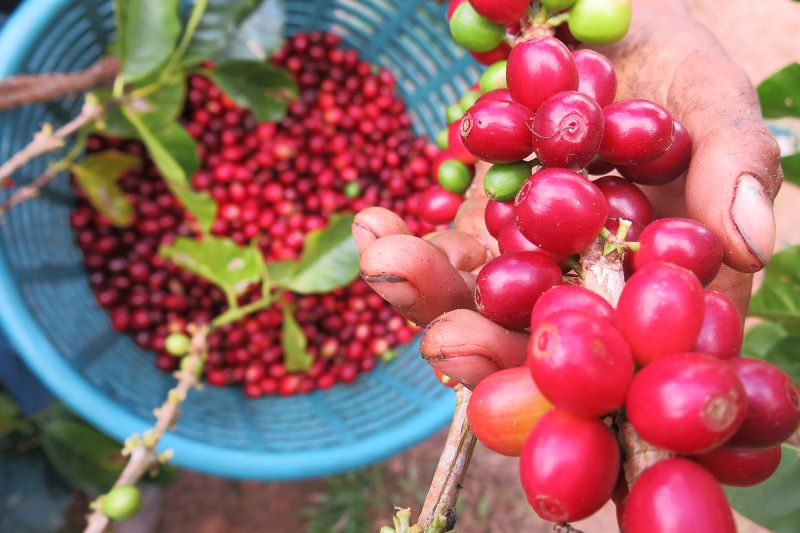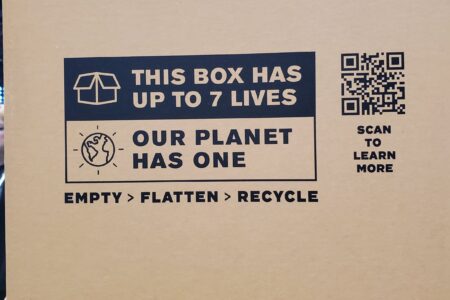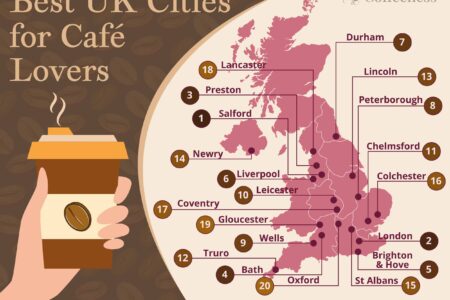The key to EUDR compliance for the coffee sector

Guatemala coffee cherries. Image: Rainforest Alliance (RA)
Coffee is one of the world’s most traded commodities and the world’s favourite beverage, and the backbone of many rural economies throughout Latin America, Asia, and Africa. Coffee farming plays a critical role in improving local infrastructure, delivering essential services such as healthcare and education, bolstering local economies, and promoting more sustainable agricultural practices.
The vast majority of the world’s 12.5 million coffee farms are run by smallholder farmers; in fact, almost three-fourths of the world’s coffee comes from small farms. Yet, if nothing is done to tackle the exacerbating issues faced by these farmers – such as climate change and low and unstable incomes – 50 percent of the regions suitable for coffee farming could disappear by 2050. As a result, farmers may resort to expanding into forested areas in their struggle to sustain and increase agricultural output, leading to further deforestation.
The Rainforest Alliance strongly believes that the European Union Deforestation Regulation (EUDR), due to come into effect on 30 December 2024, is an important step forward in the global fight against deforestation and forest degradation linked to the production of several high-risk commodities, including coffee.
However, as companies race towards EUDR compliance, we are seeing the very real risk of companies only meeting the minimum requirements and neglecting their responsibility to support farmers and address systemic poverty – a major contributor to deforestation. To address this, it is crucial that more value finds its way from companies to smallholders, who are vital to global food supply chains. This is why the role of certification has never been more important for the coffee sector.
Challenges faced by smallholder coffee farmers
In our work over the last 36 years, we’ve seen that smallholder farmers often lack the financial resources and technical expertise needed for better farm management, traceability, and accountability, such as GPS mapping. This further exacerbates the challenges they face, creating a barrier for producers who lack access to such tools.
EUDR compliance requires providing GPS points or polygons, which can overwhelm smallholder farmers operating in remote or rural areas with limited infrastructure. Without the required support, they are at a disadvantage compared to larger, more resourced competitors which also risks marginalising them from lucrative European markets.
The cumulative effect of these challenges underscores the need for support mechanisms, such as financial assistance, training programmes, and infrastructure development, to help smallholder farmers align with EUDR requirements and remain competitive in the global market.
Certifications: bridging regulatory requirements and sustainable agriculture
Certification acts as a bridge between regulatory demands and the transition towards more sustainable and regenerative agricultural practices. It provides a structured framework for coffee grown and harvested in ways that aim to protect forests and support local communities, through:
- Credibility and assurance: Recognised programmes (like Rainforest Alliance certification) provide a credible stamp, assuring brands, regulators and consumers that certified coffee aligns with a strict set of social, economic and environmental sustainability standards.
- Traceability: Certification processes often include robust traceability mechanisms, allowing companies to track their coffee’s journey from farm to cup. This traceability is crucial for EUDR compliance, ensuring products are deforestation-free.
- Sustainable agriculture: At the heart of certification is the promotion of sustainable farming practices beyond addressing deforestation, including climate resilience, improved livelihoods, biodiversity conservation, protection and advancement of human rights, business training, and compliance with local laws. This holistic approach aligns with the broader goals of the EUDR by addressing some of the root causes of deforestation.
For the coffee sector, embracing certification is not just a strategic move – it is an essential step towards ensuring that every cup of coffee contributes to positive change for both farmers and nature.
- Miguel Gamboa is coffee sector lead at the Rainforest Alliance and is based in Guatemala. He trained as an industrial engineer with Masters in Reengineering and International Trade. Gamboa started his professional career working in a coffee exporting company. Twenty years ago, he started working with the UTZ certification programme, learning about the different realities of coffee production throughout Latin America. After the merger of UTZ and the Rainforest Alliance, Gamboa was appointed coffee representative manager for Latin America, and assumed his current position in September 2022. With 37 years of experience in tackling deforestation in global supply chains, the Rainforest Alliance’s systems can help certified coffee supply chain partners take steps towards complying with EUDR requirements. RA is also developing a deforestation risk assessment offering for non-certified supply chains.



